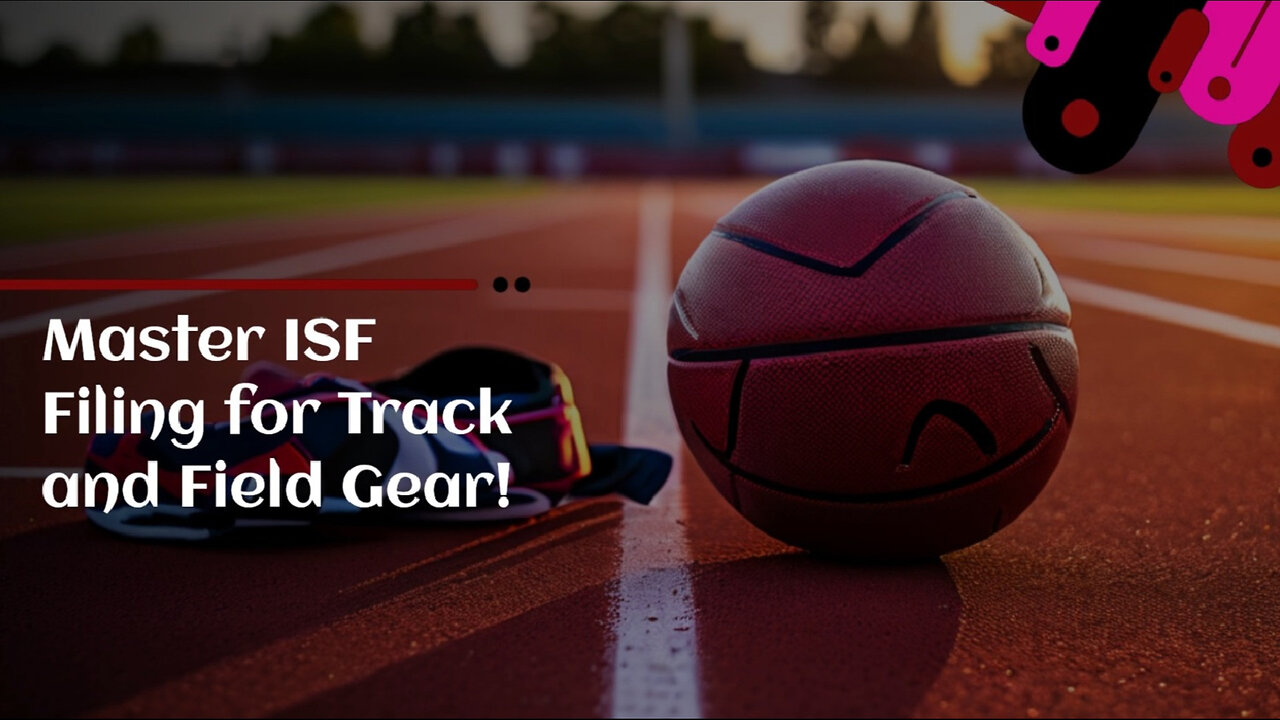Premium Only Content

Mastering ISF: The Essential Guide for Importing Track and Field Products
ISF Template | 562-453-7357 | isf@isftemplate.com | www.isftemplate.com
In this video, we deep dive into the topic of Importer Security Filing (ISF) for other track and field products. We begin by providing a brief recap of what ISF is - a mandatory filing requirement by the US Customs and Border Protection (CBP) for all ocean shipments entering the United States. The purpose of ISF is to ensure the safety and security of the international supply chain by submitting relevant information about the goods being imported and the trade parties involved.
We then discuss when to file an ISF for other track and field products. Generally, the ISF needs to be filed at least 24 hours before the goods are loaded onto a vessel bound for the United States. However, we highlight an exception to this rule - if the goods are being transported by certain types of vessels, such as non-vessel operating common carriers (NVOCCs), the ISF must be filed 24 hours prior to the cargo's arrival at the first US port.
Moving on, we delve into how to file an ISF for other track and field products. The first step is to gather all the necessary information related to your shipment, including details about the shipper, consignee, manufacturer, seller, buyer, HTS codes, value, and quantity of the goods. Next, you have the choice to file the ISF yourself through the Automated Broker Interface (ABI) system or hire a customs brokerage firm to handle it for you. We emphasize the importance of accuracy and caution during the filing process to avoid penalties or delays in the customs clearance of your goods.
We also touch upon the significance of having a customs bond when filing the ISF for other track and field products. A customs bond is a financial guarantee that ensures the payment of import duties, taxes, and fees to the CBP. It is mandatory for most importations into the United States, so it is crucial to have a valid customs bond in place before filing your ISF to avoid any issues with customs clearance.
Finally, we stress the importance of timely and accurate filing of the ISF. Any missing or incorrect information can lead to penalties, holds on your cargo, or exclusion from participating in the Automated Commercial Environment (ACE) system. Therefore, many importers choose to work with experienced customs brokers who are well-versed in the ISF filing process and can ensure compliance with all relevant regulations.
In conclusion, when importing other track and field products, it is essential to file the Importer Security Filing (ISF) correctly and on time. This involves gathering the necessary information, deciding whether to file independently or with a customs brokerage firm, ensuring a valid customs bond, and double-checking the accuracy of all information. By following these steps, you can facilitate a smooth and efficient customs clearance process for your goods.
#usimportbond #isfcustomsbroker #uscustomsclearing #isfentry
Video Disclaimer Here: This video is designed for education and is unaffiliated with US government bodies.
00:32 - Importance of ISF
1:06 - When to File ISF
1:42 - How to File ISF
2:38 - Customs Bond Requirement
3:09 - Accuracy and Timeliness
-
 41:54
41:54
Stephen Gardner
21 hours ago🔥Alex Jones drops BOMBSHELL - President Trump Was RIGHT!
47.6K163 -
 11:09
11:09
Nikko Ortiz
1 day agoMost Painful TikTok Clips... Part
39.5K17 -
 17:59
17:59
The Kevin Trudeau Show Limitless
4 days agoClassified Secret Society File 2: The Truth About The Brotherhood's Hidden Agenda EXPOSED!
83.7K31 -
 10:47
10:47
Cyclops Videos Joe W Rhea
6 days ago17HMR Winchester Rifle Single Shot Rimfire
16.6K2 -
 1:18:35
1:18:35
Side Scrollers Podcast
1 day agoEVERY 10 SUBS I JUMP
64.1K6 -
 2:39:04
2:39:04
DLDAfterDark
13 hours ago $1.91 earnedDLD Live! The After Hours Armory - The GOALS 2025 Convention After Action Review
17.8K4 -
 2:10:12
2:10:12
Tundra Tactical
13 hours ago $1.30 earnedThe Worlds Okayest Gun Live Stream: GOALS Recap
16K -
 2:39:05
2:39:05
BlackDiamondGunsandGear
14 hours agoGOALS After Show / w EVERYONE!!
11.2K3 -
 2:13:41
2:13:41
PandaSub2000
16 hours agoAce Of Boats | ULTRA BEST AT GAMES (Edited Replay)
20.9K1 -
 LIVE
LIVE
Lofi Girl
2 years agoSynthwave Radio 🌌 - beats to chill/game to
187 watching